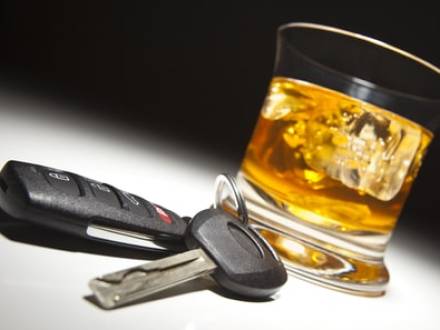Recent Blog Posts
How a Maryland DUI Can Damage Your Future
 Being charged with DUI can be stressful and overwhelming. DUI charges can also be life-altering in ways you may not have thought about. A DUI conviction in Maryland is much more complicated than paying a ticket and moving on with your life. It is rare for DUI convictions in the state to be expunged, so a DUI conviction can follow you for the rest of your life.
Being charged with DUI can be stressful and overwhelming. DUI charges can also be life-altering in ways you may not have thought about. A DUI conviction in Maryland is much more complicated than paying a ticket and moving on with your life. It is rare for DUI convictions in the state to be expunged, so a DUI conviction can follow you for the rest of your life.
The time to take action to prevent the consequences of a DUI conviction is as soon as you are charged with the offense. Having a knowledgeable DUI attorney on board is literally the most important step you can take to safeguard your future. The sooner your attorney is on the case, the sooner he or she can take steps that will positively impact your DUI charges. In most cases, you can expect a much better outcome when you have a Baltimore County, MD DUI lawyer as your advocate.
Need a Criminal Defense Attorney? Don’t Panic - Take Your Time
 It’s easy to panic when you’ve been charged with a crime. You may also feel anxiety, stress, anger, and fear. The very first thing you should do after being charged with a crime is speak to an attorney. Unfortunately finding an attorney quickly can add to your stress, but it is something you should always approach calmly. Rushing into a decision can result in not getting the right attorney. If you have never been in trouble with the law before, you may not know how to hire a criminal defense lawyer.
It’s easy to panic when you’ve been charged with a crime. You may also feel anxiety, stress, anger, and fear. The very first thing you should do after being charged with a crime is speak to an attorney. Unfortunately finding an attorney quickly can add to your stress, but it is something you should always approach calmly. Rushing into a decision can result in not getting the right attorney. If you have never been in trouble with the law before, you may not know how to hire a criminal defense lawyer.
Maybe you have a family member, friend, or co-worker who has used a local criminal defense lawyer. If so, you might ask them for the attorney’s name. You can also look online at the criminal defense attorneys in your area who have experience with your specific crime. When you choose a Frederick County, MD criminal defense attorney from Law Offices of Mallon Snyder, you have taken an important first step in protecting your rights and your future.
Can you get in trouble for sobering up in a parked car?
Drinking and driving can land you in hot water, even if your car isn’t moving. Many folks don’t realize that in Maryland, the law can slap you with a DUI even after you park your vehicle.
It’s a tricky situation that may catch many by surprise. Knowing the ins and outs of Maryland’s restrictions might save you from a world of trouble.
What counts as "driving" under Maryland law
In Maryland, you don’t have to be cruising down the highway to get a DUI. If the cops think you have physical control of your vehicle while you’re under the influence, you could be in for a rough night. This means the law could arrest you on suspicion of a DUI even if your car’s just sitting there.
Here’s what might get you in trouble:
- Keys in the ignition: This shows you could start driving anytime
- Sitting behind the wheel: Looks like you’re ready to hit the road
Ways to defend your child from underage drinking charges
Ways to defend your child from underage drinking charges
As a parent, receiving a phone call about your child’s arrest can be one of the most distressing moments you face, especially when it involves underage DUI charges. Still, it is important to note that there are ways to fight these charges and minimize their impact on your child’s life.
Maryland has "zero tolerance" for underage drinking and driving
In Maryland, drivers under 21 with a Blood Alcohol Concentration (BAC) of .02% or higher may face DUI charges. Penalties for violations can lead to:
- Fines up to $500 for first-time offenders
- License suspension for up to 6 months
- Mandatory alcohol education programs
- Community service requirements
- Potential impact on college applications and future employment
These consequences can seriously impact your child’s life, both now and in the future. It is crucial to take appropriate action right away.
What constitutes an aggravated DUI offense?
Drunk driving charges carry significant consequences that can affect every aspect of your life, from your job prospects to your personal relationships. However, when aggravating factors are involved, your situation can become even more serious. But what exactly are these factors that make a DUI charge "aggravated," and how much can they influence the outcome of your case?
What are the aggravating factors in a DUI?
Aggravating factors are specific circumstances that can increase the severity of a DUI offense. These factors often lead to harsher penalties, including longer jail sentences, higher fines and extended license suspensions. Some common examples of these aggravating factors are:
- High blood alcohol content (BAC): Under Maryland law, you are legally impaired if your BAC is 0.08% or higher. However, a BAC of 0.15% or more constitutes an aggravating factor that can lead to harsher penalties.
License reinstatement: Reclaiming your driving privileges
Facing a drunk driving charge can turn your world upside down. The fear of losing your driver’s license might keep you up at night, wondering how you’ll get to work, pick up your kids or simply maintain your independence. But here’s the good news: you can always reclaim your driving privileges.
Maryland has a reinstatement process to help drivers regain their licenses and get their lives back on track. In this blog, we’ll break down the reinstatement journey, offering clear guidance and practical tips to help you navigate this challenging time.
What is the process for reinstatement?
In Maryland, the reinstatement process hinges on specific waiting periods, which vary based on the number of previous revocations. For a first-time revocation, drivers must wait six months before requesting reinstatement. This period increases to 12 months for a second revocation, 18 months for a third and 24 months for four or more suspensions.
The waiting time starts on the day the driver surrenders their license or the suspension date, whichever occurs later. Once the waiting period is over, you can file your request.
Parking your car after a night out can be wise
Enjoying a night out with friends can be a highlight of the week. Still, it is crucial to consider your safety and others when done partying.
While taking a cab or using rideshare services might seem like an extra expense, it is a small price to pay compared to the potential cost of a driving under the influence (DUI) conviction.
Drunk driving can lead to criminal charges
In Maryland, as in most states, drivers aged 21 and older may operate as long as their blood alcohol concentration (BAC) stays within 0.08%, the legal limit. For those who drive commercial vehicles, the limit is 0.04%. For those under 21, any detectable amount of alcohol is illegal. For a first offense of driving with a BAC at or above this limit, you might face:
- Up to $1,000 in fines
- Maximum one year in jail
The penalties for drunk driving: A guide for young drivers
If you are a young driver in Maryland, underage drinking and driving can be a dangerous gamble that can derail your future. The state takes these offenses seriously and the penalties can be harsh.
Understanding your situation is the first step to protecting your rights and your future. This blog will break down the potential consequences of underage drinking and impaired driving in the state.
The consequences of drinking for young drivers
Drivers under 21 may be fined $500 if they are caught buying, possessing or consuming alcohol. The fine doubles if they repeat the offense.
Violating alcohol restriction laws in the state may also result in license suspension. Moreover, offenders will have to participate in an ignition interlock program.
Owning fake identification cards is also punishable by law in Maryland. Those under 21 possessing fake IDs may have to pay a fine of $500 and even spend two months in jail. This violation also adds 12 points to a driver’s record and may lead to the revocation of their driving privileges.
How accurate are breathalyzers?
The breathalyzer can seem like a foolproof tool for measuring blood alcohol content (BAC). But how accurate can it really be?
Breathalyzers work by measuring the amount of alcohol in your breath. They convert the data collected to an estimated BAC using a specific ratio. In theory, it’s a clean process. However, things get interesting when considering factors that can influence accuracy.
Routine calibration
Like any instrument, breathalyzers need regular calibration to ensure consistent results. Maryland has strict protocols for the calibration procedure, but any lapse in maintenance can lead to faulty readings. An attorney can challenge the test’s validity if calibration records are missing or incomplete.
Maryland uses two types of breathalyzers. The first is Preliminary Breath Tests (PBTs) for roadside screening, which are hand-held breathalyzer units used by police officers on individuals suspected of by asking them to DUI to blow into it while on the side of the road. PBTs are less accurate than the stationary machines used at police stations and are not admissible as evidence in court.
What makes DUI a felony?
Driving under the influence (DUI) is a severe offense. It is usually treated as a misdemeanor in Maryland, and an individual may face penalties like fines, license suspension, and community service.
However, there are situations where a DUI can elevate to a felony, resulting in harsher consequences. Understanding the situation can help you make responsible decisions and avoid a more serious charge.
When does a DUI become a felony?
The key factor that bumps a DUI misdemeanor up to a felony is when the accident causes serious injury or death. If an individual driving under the influence severely hurts or kills someone, they might face felony charges for crimes like vehicular assault or manslaughter. These charges may come with significant jail time, hefty fines and a permanent mark on their criminal record.
While a high blood alcohol content (BAC) is not enough to automatically turn a DUI into a felony, it can increase the severity of the charges, especially if combined with other factors. Maryland has a standard BAC limit of .08, but a BAC of .15 or higher can be considered an aggravating factor in a DUI case. If the driver is under 21 years old and their BAC is .02 or higher, they may face serious DUI charges.

Contact Our Team Today
Office Location
107 N Adams St
Rockville, MD 20850
Call 301-762-7500
The use of the Internet or this form for communication with the firm or any individual member of the firm does not establish an attorney-client relationship. Confidential or time-sensitive information should not be sent through this form.
I have read and understand the Disclaimer and Privacy Policy.




